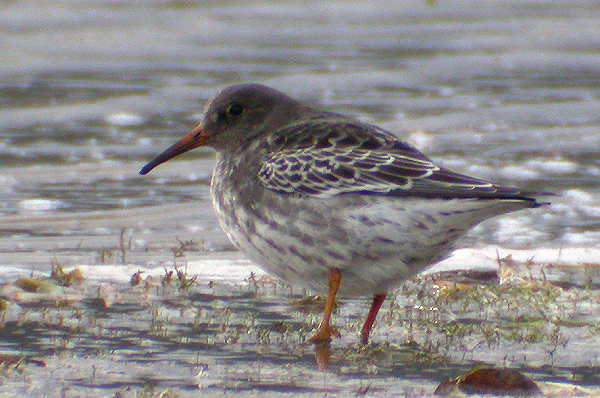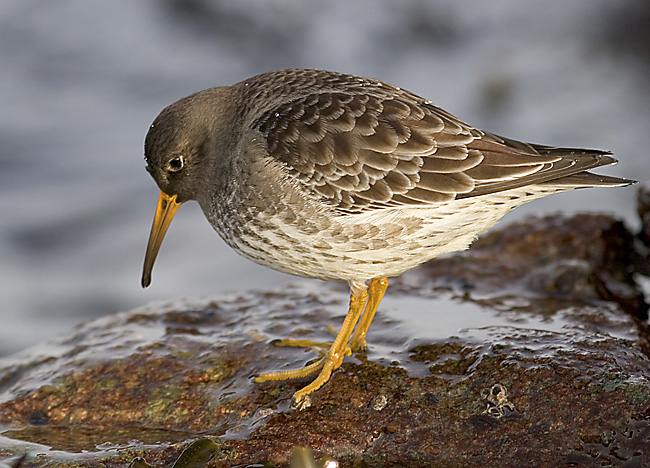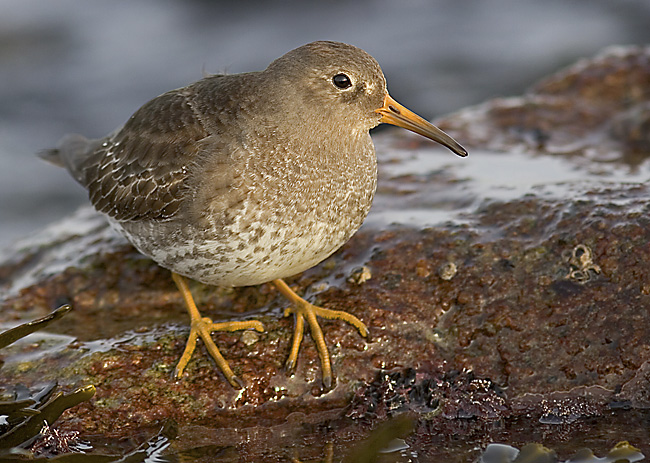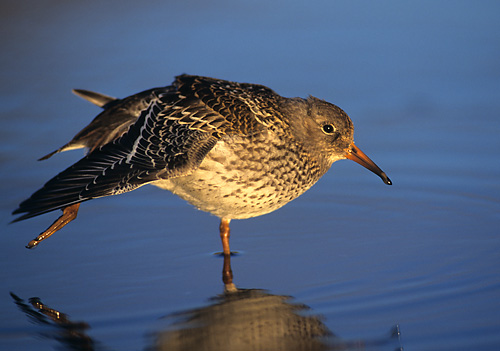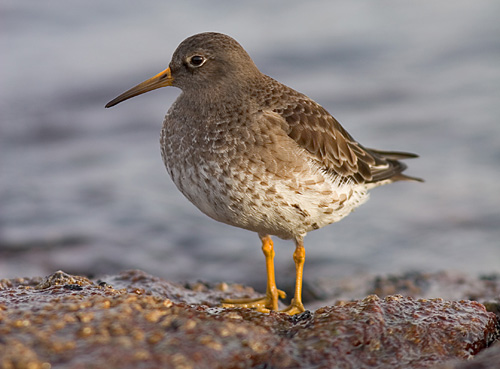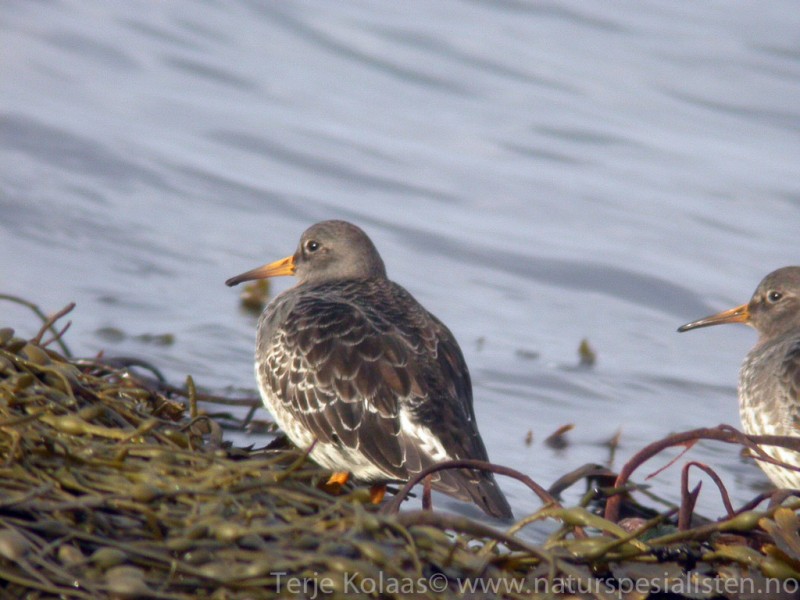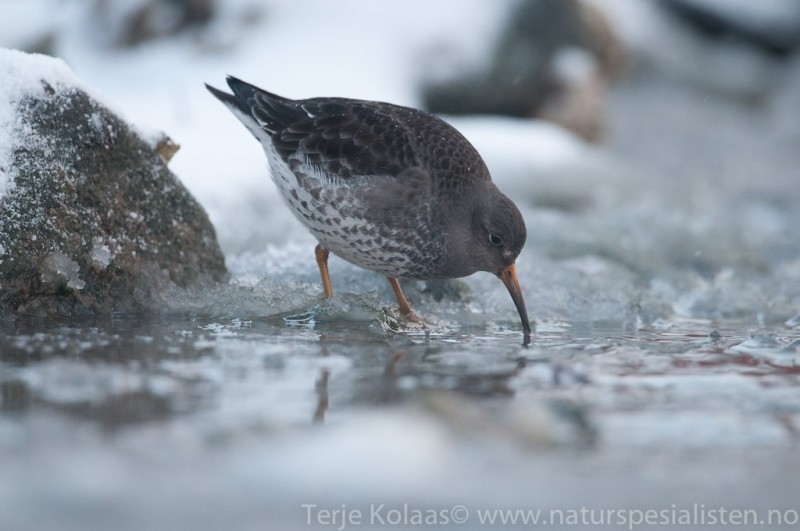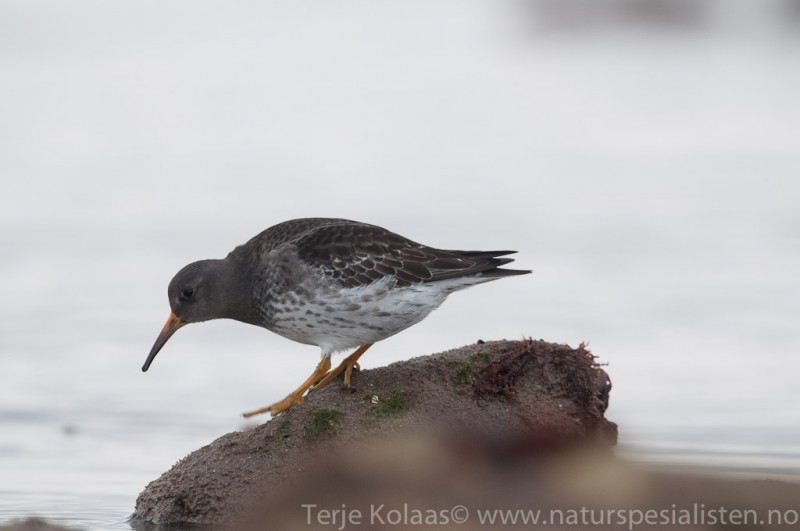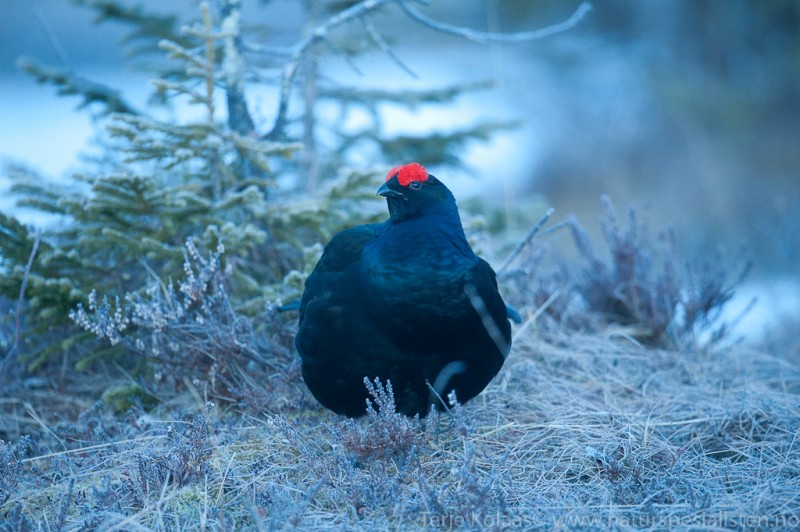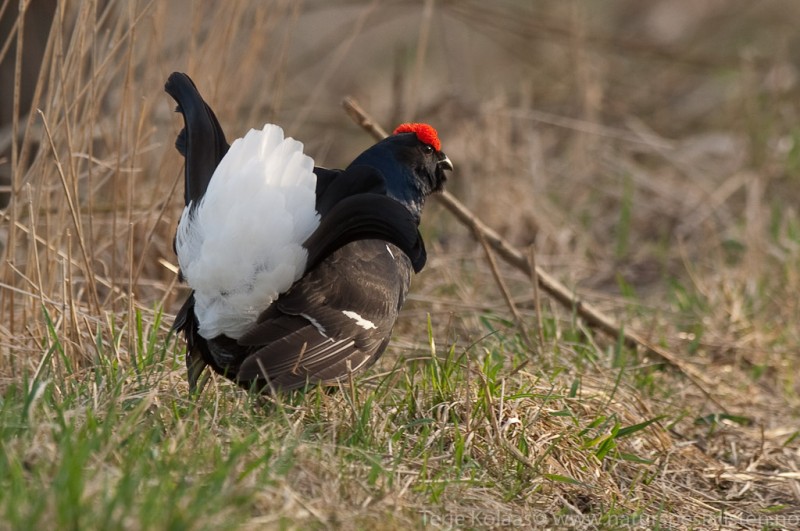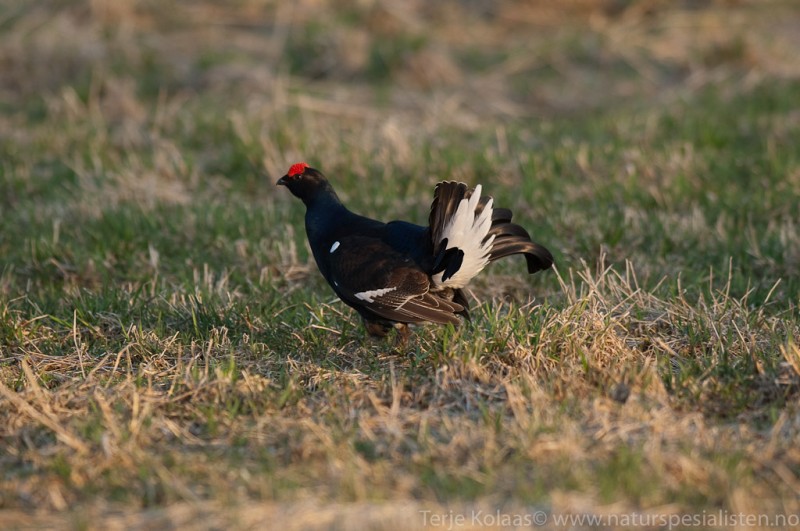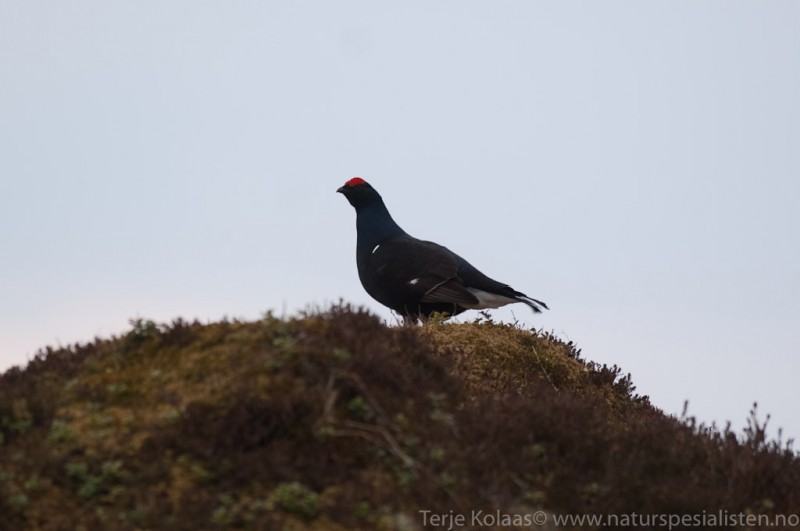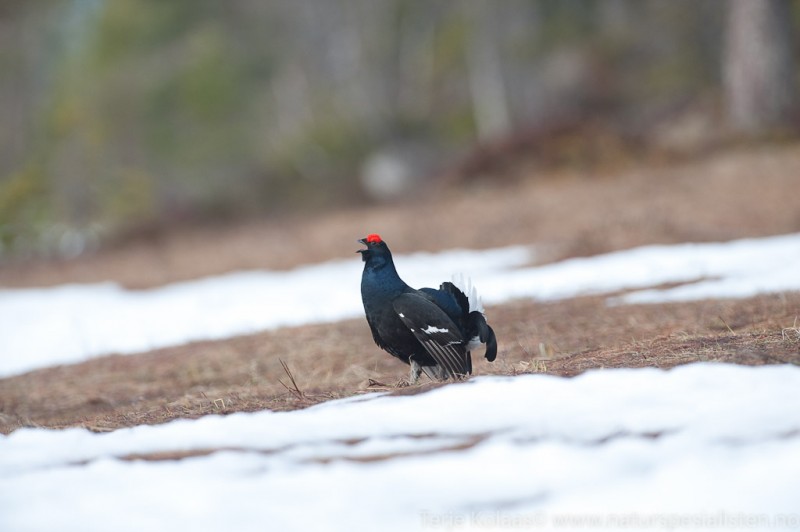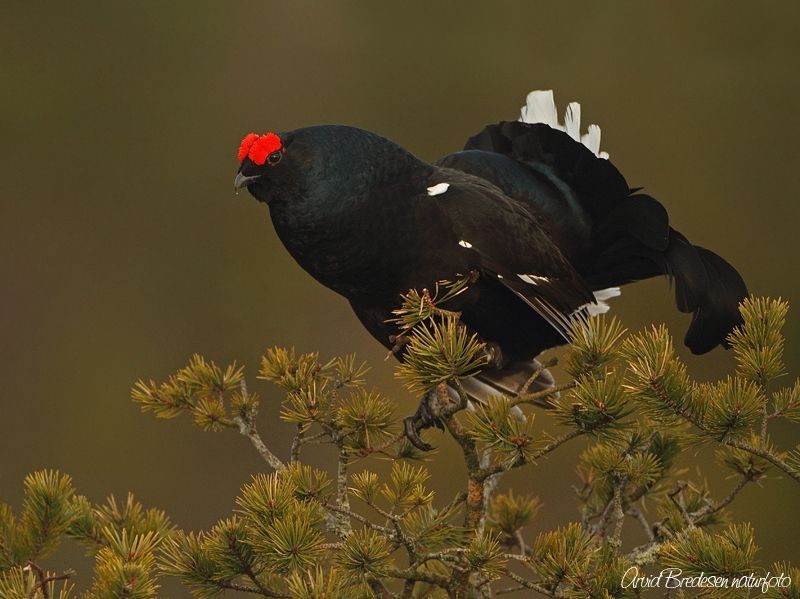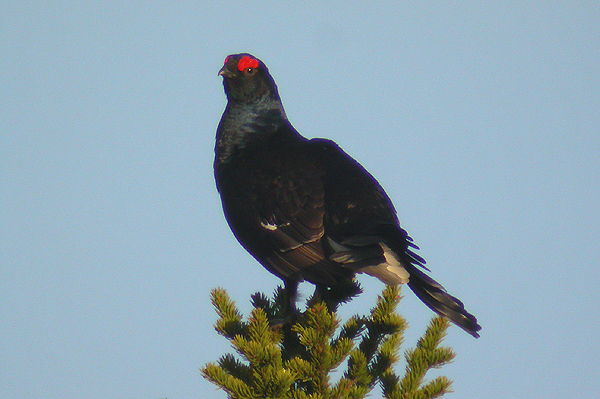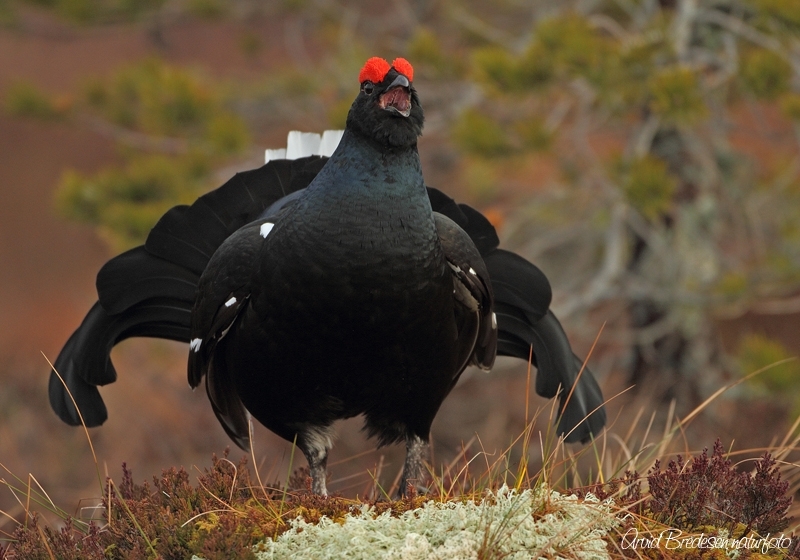Purple Sandpiper (Calidris maritima)
Black Grouse (Lyrurus tetrix)
Robust, compact and dark wader, with relatively long and slightly curved bill. Mostly seen in winter at the coast where it prefers rocky surfaces as opposed to most other waders. In winter plumage the base of bill and legs are yellow, and the upperparts grey with dark markings. Breeds in high Arctic and mountains. Summer plumage darker than winter, with brown fringes/spots on back, and darker bill and legs. Similar wing and rump pattern to Dunlin, but appears overall darker. Tail extends beyond wing tips of resting birds. Flight patterns at wintering grounds straight and low.
Sound:Contact call a hoarse and hard "weet". Sometimes in chattering series. Song quite varied with series of short, nasal, vibrating sounds, interspersed with drawn out, slower calls.
Contact call:
Distribution:
Wikipedia: map (se also Xeno-canto below)
Ecology:Birdlife ecology
Links:
Observation.org Latest observations
Image search Flickr NB! May give other species
CCSounds:Recorded by Stein Ø. Nilsen,http://www.xeno-canto.org ,CC license
Male differs from Capercaillie in smaller size, stockier build, curled outer tail-feathers and pure white under tail-coverts. Both sexes with white wing bars. Female more evenly speckled than Capercaillie, lacking brick coloured patches on breast an neck. Much less noisy when flushed than Capercaillie.
Sound:Song: a far reaching, continuous, bubbly cooing, occasionally interrupted by a hissing "chooo-eee". Female calls with a nasal "go-go-go-gooo", ending on a falling drawn-out note.
Song:
Distribution:
Wikipedia: map (se also Xeno-canto below)
Ecology:Birdlife ecology
Links:
Observation.org Latest observations
Image search Flickr NB! May give other species
CC
 English
English Albanian
Albanian
 Armenian
Armenian
 Bulgarian
Bulgarian
 Catalan
Catalan
 Croatian
Croatian
 Czech
Czech
 Danish
Danish
 Dutch
Dutch
 Finnish
Finnish
 French
French
 Georgian
Georgian
 German
German
 Greek
Greek
 Hungarian
Hungarian
 Italian
Italian
 Latvian
Latvian
 Lithuanian
Lithuanian
 Macedonian
Macedonian
 Norwegian
Norwegian
 Polish
Polish
 Portuguese
Portuguese
 Romanian
Romanian
 Russian
Russian
 Sami : Lule sami
Sami : Lule sami
 Sami : North sami
Sami : North sami
 Sami : South sami
Sami : South sami
 Scientific names
Scientific names
 Serbian
Serbian
 Spanish
Spanish
 Swedish
Swedish
 Ukrainian
Ukrainian


